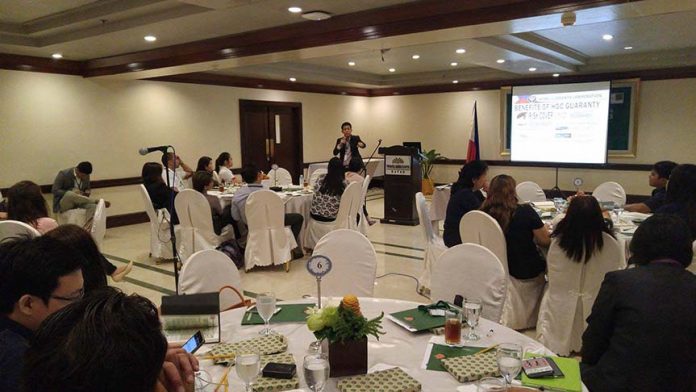
Banks and real estate developers in the Davao Region were invited to avail themselves of the loan guaranty programs of the Home Guaranty Corporation (HGC) to be able to assist in addressing the housing backlog in the Philippines.
The invitation was extended by Frank Lloyd C. Gonzaga, manager III of the Business Development and Accounts Evaluation Department of the HGC, a six-decade old government –owned and –controlled corporation (GOCC) designed “to mobilize resources for housing through a system of credit guaranties and incentives.”
Gonzaga led a team of national HGC officials to hold a housing finance briefing attended by more than 60 bankers and real estate developers at the Royal Mandaya Hotel last Tuesday, May 16.
In an exclusive interview with Edge Davao, Gonzaga said that pursuant to the HGC Act of 2000 or RA 8763, the government home guaranty corporation has been granted another 50 years of corporate life and its authorized capital increased from P2.5 billion to P50 billion, “making it possible for the national government to guarantee the payment of the corporation’s obligations.”
Gonzaga bared that RA 8763 also authorizes the HGC to promote the secondary mortage market, and prioritize socialized and lowcost housing projects.
During the briefing, he explained to participating bankers and property developers HGC’s three leading programs, namely development loan guaranty, retail loan guaranty and guaranty for securitized schemes. Development loan guaranty covers loans extended to developers for the development of subdivision, townhouses, dormitories, apartments, and other residential dwellings. Retail loan guaranty covers loans and credit facilities extended for the purchase or acquisition of single-family residences. On the other hand, the guaranty for securitized schemes provides guaranty covers on securities or the financial instruments issued to raise funds for housing. It can also guaranty the mortgage receivables backing up the said securities.
Gonzaga said HGC is currently mulling over guaranty for development of subdivision for workers of the country’s fast-growing tourism industry.






